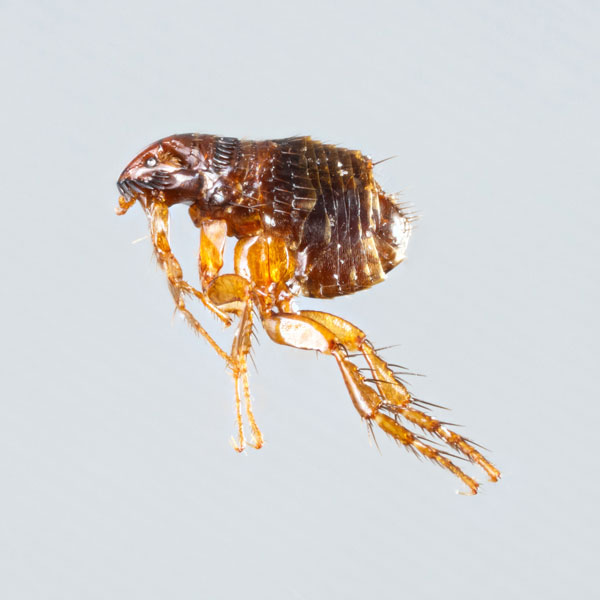Pest Description
Flea Habits
Fleas reproduce rapidly, laying eggs in batches of 20, typically on their hosts. This is why areas where the host lays or sleeps can be the source of flea infestations. The eggs can take anywhere from 2 days to two weeks to hatch, and a female flea will lay up to 500 eggs in her lifetime.
Once the flea reaches adulthood its primary goal is to find blood – adult fleas must feed on blood in order to reproduce. Adult fleas can survive two months to a year between meals.
Preventing Fleas
Typically, a flea problem within a building is caused by a dog or cat becoming infested and then entering the building. Infestations can also occur when wild animals occupy unused spaces of a building, like attics or basements. A lot of wild animals have fleas, including racoons, opossums, mice and rats, and squirrels.
Flea prevention usually involves a number of methods, including anti-flea pet treatments and scheduled grooming. There isn’t a fool-proof way to prevent fleas, and fleas are not a sign of a dirty home. However–frequent cleaning and vacuuming of rugs can help you find a problem before it gets bigger. Regular grooming of your pet is a great way to watch for a flea problem as well.
If you don’t have pets but you do have fleas, it could be caused by a number of circumstances, including human guests or a potential wildlife infestation.
Eliminating Fleas
Once a flea infestation is confirmed, it’s important to take care of it as soon as possible. Fleas are prolific breeders, and an infestation can spread throughout the building in a short time. Flea eggs can fall off a host and hatch in pet bedding, furniture, and carpeting.
If your infestation has progressed, or you can’t figure out why you have fleas, call a professional flea exterminator. They can recommend specific treatments to eliminate fleas completely.








